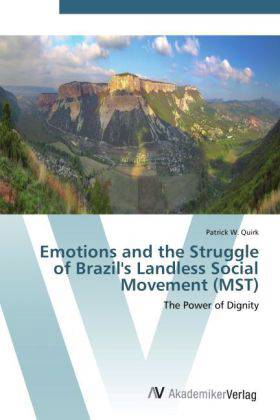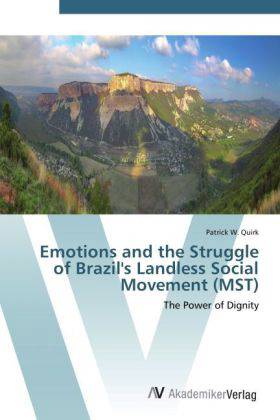
- Afhalen na 1 uur in een winkel met voorraad
- Gratis thuislevering in België vanaf € 30
- Ruim aanbod met 7 miljoen producten
- Afhalen na 1 uur in een winkel met voorraad
- Gratis thuislevering in België vanaf € 30
- Ruim aanbod met 7 miljoen producten
Zoeken
Emotions and the Struggle of Brazil's Landless Social Movement (MST)
The Power of Dignity
Patrick W Quirk
Paperback | Engels
€ 74,95
+ 149 punten
Omschrijving
Revision with unchanged content. In recent years, political scientists and sociologists have examined the manner by which emotions incite and condition social movement formation and action. However, the current scholarship does not address the role that dignity plays in this process. Using Brazil's Landless Rural Workers' Movement (MST) as the case study, this book argues that through involvement in a social movement individuals are instilled with the "power of dignity." By participating in a social movement, an individual's "old self" is replaced by a new, "dignified" self, which in turn spurs the participant to express varying levels of engagement in a social movement. The analysis is based on field research in three states in Brazil. After an overview of the MST's history, development, and mobilization tactics, the book provides an outline of the current social movement literature and demonstrates the gap filled by the "power of dignity" argument. The book aims to prove that dignity, and emotions in general, have a firm and important place in social movement theory. The book should be useful for those interested in political science, social movements, Brazil and the Landless Workers' Movement.
Specificaties
Betrokkenen
- Auteur(s):
- Uitgeverij:
Inhoud
- Aantal bladzijden:
- 164
- Taal:
- Engels
Eigenschappen
- Productcode (EAN):
- 9783639433609
- Verschijningsdatum:
- 28/06/2012
- Uitvoering:
- Paperback
- Formaat:
- Trade paperback (VS)
- Afmetingen:
- 152 mm x 229 mm
- Gewicht:
- 249 g

Alleen bij Standaard Boekhandel
+ 149 punten op je klantenkaart van Standaard Boekhandel
Beoordelingen
We publiceren alleen reviews die voldoen aan de voorwaarden voor reviews. Bekijk onze voorwaarden voor reviews.







